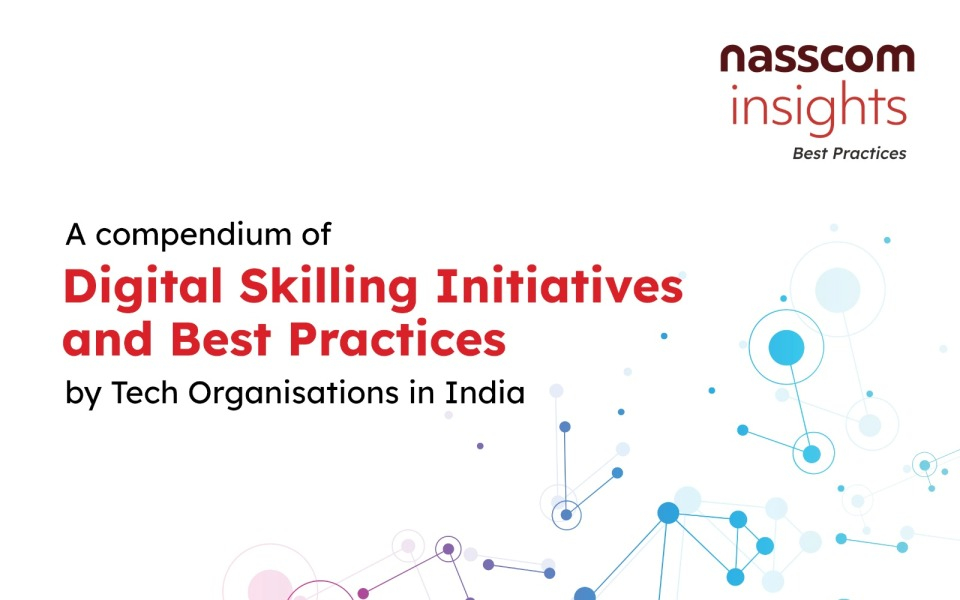Do you often fail to understand what your employees think? Have you often struggled to retain employees while starting up? Have you ever caught your employee not working effectively during the office hours? Well.. we all entrepreneurs have this issue. In fact this is the first hurdle that any entrepreneur faces in his or her journey while starting up – identifying right people, hiring and retaining them to grow the company is probably the biggest challenge!
Often, StartUps are a high risk game that only few people can play with precision. We entrepreneurs are constantly under pressure to make our companies work. We sweat our blood out to get those initial few paying subscribers. We do everything to bring delight on the face of our first few customers. We go an extra two mile to make every subscriber appreciate the product we would have built with so much passion, care and love, isn’t it? These are very human centric targets, often achieved through human interactions and through a loyal, trustworthy, passionate employee base who have a sense of belonging to the company they are working for. Therefore employees are pillars for an organization’s success.
Human is the lowest common denominator for an organization that is mounted on the runway of success, if you loose your human resource, you have lost it all – no matter how awesome the product is.
Now here is the exam question. How do we gain an employee’s loyalty, how do we induce passion in him or her, how do you get them to add value to the organization? what kindles a lamp of teamwork in them?
Well, in my entrepreneurial journey, I did a lot of analysis and put my brain into a great deal of thinking to find some proven techniques that works like charm – which I am sharing with you today.
At the end of the day, employees are humans, they have a family to take care of, they have aspirations, they have dreams, they are there to earn a living.
Understanding the psychology of an employee is key to get the best out of them. I was quick to realize that understanding the most inherent and instinctive characteristics of a human being is very hard when there is a layer of human led deliberate manipulation on top of natural behavior of people – example : an employee trying to smile when there is no salary hike declared, or an employee pretending to be happy at work when he is assigned a less challenging role – all these are pseudo gestures that prevents an employer from knowing what exactly goes on in the minds of an employee when an undesirable event takes place. To get to the bottom of this, I started observing my own daughter who is 3 year old, at this age, they have no masks, they exhibit their natural basic instincts without fear, they act and react naturally to situations and they form the best prototypes that could help us understand our employee’s behavior in the most definite way.
After spending hours with the little one observing her behavior quite closely here are some of the conclusions I could draw and have found very beneficial in my day to day work as an entrepreneur :
1. Employees need attention like the kids do :
An ignored employee is lost forever, employees need attention almost on a daily basis. They need to be spoken about in an organization in a positive way. This creates a huge impact. They are exactly like our kids, if you do not given kids the necessary attention during the day, it affects their moral and they start getting very disturbed and throw tantrums (often unrelated to their daily routine and often attention grabbing) to regain the sight of their parents. Similarly, an employee, if not spoken about in the organization or ignored by their bosses, often look to move into jobs where they can actually be looked at “being important” – it is not only vital to make them feel “important” but also give them the necessary attention in the organization. Like I often give building blocks to my daughter to build a car while I watch the TV or browse internet whilst she builds the car, once the car is built (of course with a little help form all of us), I drive the car around the house and show how beautiful the car looks and appreciate the efforts of the “little one” in building it – this brings the delight in her face and she is on a high for the rest of the day. This is exactly what needs to be done to an employee. Try to include their names in company newsletters, try to give them small gifts from time to time (it could be as small as a voucher to a near by cinema or a dinner vouchers) – you will see such positive changes in them.
2. Employees need to be promised of a reward and fulfilled :
Often when our “little one” does not eat properly, we promise to give them something they enjoy after the task (eating food is the task here) is completed – like chocolates or ice-cream if they eat their supper fully. This serves as an instant motivation for them to complete the tasks (finishing the food on their plate in this context) – but soon after they complete it, they expect you to honor your promise. If they find out that your promise was false, the same trick will most certainly fail to work the next time. Similarly, when you ask your employee to work slightly over-time or beyond their boundaries of the normal work, do not make it look ordinary. Always tag it with a reward, the reward could be as simple as sponsoring a pick up and drop cab service for them to come to commute to work on that day or allowing them to order their favorite food from an otherwise expensive restaurant and footing the bill as an employer, paying for the extra hours of work they put in (like add a surprise bonus component at the end of their month on to their salaries) and give them the required credit by saying “because XYZ worked so hard to complete ABC, we achieved EFG” and mention about it in the weekly employee communication or a staff meeting. Often an employer takes the employees for granted and expects the employees to take up addition tasks as “business as usual” without any reward components attached to it. Avoid this culture.
3. Paying on par with market :
If you kids do not get the toys that their peers get to play with, they either want to spend time at their friends place to play with those toys they crave for (comparable to freelance culture in employees who work to earn that extra money after their regular day jobs) or they demand parents to buy them these toys so that they could enjoy playing with it at home all by themselves (comparable to employees expecting promotions, wage hikes etc and are explicit about their demands) – In the factory based models, a few years back, employees often use to go on “strikes” to get their wage revised. This is done in a very polished way these days – an employee either takes up a freelance work to meet his own demands or ends up changing the job for a better pay. While starting up, if a cash compensation is not possible, an entrepreneur should either look at compensating them with suitable ESOPs or a pay them a cut from the revenue that they directly generate for the company.
4. Give them a break :
Often kids complain that they want to take a break from their schools, they get overwhelmed with their homework and wants a time off from their daily mundane commute to school. Likewise you do not wantpeople to be dragging their foot to offices just for the sake of it. Introducing a flexible work culture with achievable targets can be very effective way of keeping the employees excited, like allowing people to work from home, paying for their internet connections, giving them a work phone and forcing them to take good breaks at regular intervals or arranging team outings along with the family members of the employees can be a great stress buster and can add immense value to the company.
Don’t you trust your own kids? Most parents do, similarly trust your employees, the lesser you monitor and supervise them the more responsible they become. They could do their own things when not supervised initially, but when they are loved, pampered, rewarded and made important genuinely, the guilt of not giving back to the employer in them takes over and they begin to work in the interest of the organization, they genuinely compensate the lost hours and gives more than their 100%.
Let me know what you think!
This blog has been reprinted with permission from the author. The original blog can be read here- http://www.thestartupguy.me/blog/b-school-lessons-from-pre-school-kids
About the Author
Karthik Prasad
Co-Founder of www.beatmysalary.com, KP writes on technology, mentoring, leadership and startups. With this blog, attempts to share his experiences with various entrepreneurs.
































